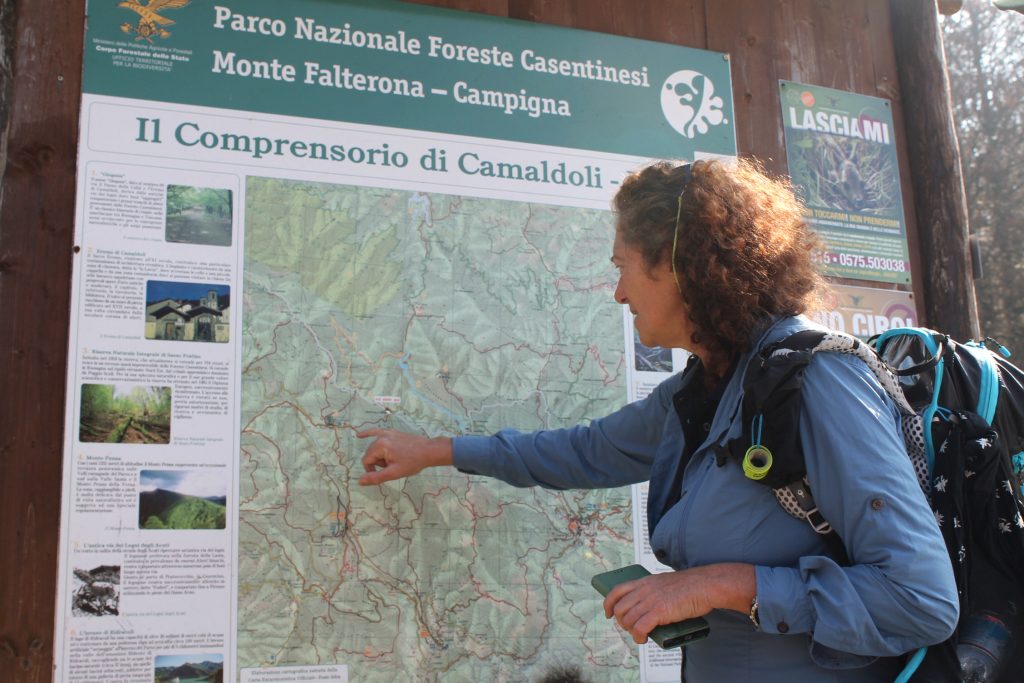Boaz Oz is a highly regarded Israeli tour guide who has led thousands of visitors across every part of Israel. For 30 years, Oz struggled to organize his tours and keep all the facts and figures about destinations in order. As a tour guide with dyslexia, he was in a constant state of anxiety about whether he had gathered and saved all the maps, brochures, and other materials needed to deliver a meaningful tour.
Oz’s story is all too common. Approximately 20% of people have a learning disability (LD). People with LDs have different brain structures than the general population, affecting how people with LDs receive and process information. Processing new information and putting it to use is an ability most travelers take for granted. For people with dyslexia, adult attention-deficit/hyperactivity disorder (ADHD), and other common, non-verbal LDs, processing information in a new setting can be very challenging.

Tour guides like Oz are usually able to get over a steep learning curve, but for lay travelers with LDs, there’s not a lot of time to absorb information and learn how to function in a new setting. While destinations have invested heavily in accommodating people with physical disabilities, “unseen” challenges like LDs don’t receive as much attention. Yet, like all travelers, individuals with LDs are interested in having meaningful travel experiences. Tour operators and destinations can help make that a reality by tailoring their offerings, offering in-person assistance, and embracing technology.
Tailoring Tourism to Unique Learning Styles
Dyslexia, ADHD, and non-verbal LDs are the LDs most likely to impact travel experiences, explained Dr. Kenneth Stefano, an educational psychologist in the Washington, DC, area and owner of Kenneth Stefano & Associates, a firm specializing in evaluations and advocacy for persons with learning difficulties. Dyslexia is a reading disorder that makes it difficult for people to distinguish between letters and, therefore, process written information. Adult ADHD makes it difficult for individuals to filter unimportant information and stimuli, resulting in difficulty concentrating and impulsive behavior. Non-verbal learning disabilities are usually characterized by an inability to understand and process non-verbal cues.
These different learning styles can be accommodated with a bit of effort and ingenuity. For example, a common method of giving and receiving information is signage. But for people with dyslexia and ADHD, this traditional form of communication is a source of great frustration. However, adding images and pictures to signs dramatically increases comprehension for people with dyslexia. In addition, highlighting important information in bold colors is an effective way to draw the attention of someone with ADHD to where focus should be directed.
According to Stefano, learning applications can also help people with LDs understand materials more easily and better organize ideas and concepts. For people with dyslexia, applications such as screen readers can transform signs and other travel-related texts into audio-based content. For people with ADHD, mobile technology can be harnessed to provide frequent reminders and updates related to travel itineraries and schedule changes.
For travelers with non-verbal LDs, reading a map can be challenging due to difficulties with spatial reasoning. In this case, Stefano suggested using assistive technology can present important direction-based information visually, making it much easier to process.
Stefano also said individuals with LDs benefit greatly from on- and off-road GPS applications. For people with dyslexia, information that’s provided in an audio format makes it much faster to process and greatly reduces the need to read. Travelers with ADHD tend to get distracted easily; for them, it’s key to provide directions in short spurts. And for people with non-verbal LDs who often can’t distinguish landmarks or right from left, a GPS has huge benefits.
Buddy System
In educational settings, many students with LDs benefit from having a mentor or tutor to help analyze academic progress, improve basic skills, brainstorm alternative strategies, and provide recognition of progress. In this vein, if destinations can offer human resources to help travelers with LDs, especially ADHD, navigate their learning challenges, both the travelers and destinations stand to benefit.
Organizations and courses such as T-GUIDE provide information about basic principles tour guides and destination staffers should observe when preparing tours and other activities for people with LDs. Destination managers should encourage employees to learn how to use multimedia sources and graphic organizers, divide activities into steps, and incorporate planning time into activities as needed.
When one-on-one support isn’t possible, apps can act as a type of travel companion. Such tools provide oral- and location-based information in more easily digestible quantities and offer alternative ways to present information.
Translating Foreign Languages with a Smartphone
Having to navigate a new place is challenging enough. If you’re visiting a foreign country, the challenges are compounded. For people with LDs, accessing information that’s in a foreign language can be especially challenging. However, destinations optimized for mobile devices can help people with LDs adapt the process of navigating a location, reading a sign, and deciphering a map in unique ways that suit how they process information.
Destinations that integrate a platform operating in different languages can alleviate the anxiety of getting around a country where information — on signs, maps, and brochures — is in a foreign language. This kind of multilingual presence can help visitors with LDs create experiences in their own language.
Assisting Travelers with LDs Benefits All Visitors
Destinations accommodating travelers with dyslexia, ADHD, and non-verbal learning disorders help make the visitation experience more accessible to these particular travelers. However, making the effort to provide accessible materials and accommodations for those with LDs ultimately improves the experience for all visitors. All travelers stand to benefit from streamlined conveyance of content.

Though creative signage and GPS are just two examples, destinations may also want to consider offering videos, infographics, or other multimedia material focused on local customs, etiquette, and accepted gestures. While travelers with non-verbal LDs would especially benefit from such tutorials, every visitor can benefit from this kind of information.
Awareness First
By recognizing and addressing common learning challenges, destinations help people with LDs travel with more confidence and they may even be able to attract visitors who previously assumed certain types of experiences were off-limits to them. In order to be truly inclusive and accessible, however, destinations need to be aware of the requirements visitors with LDs have and take steps to ensure appropriate support measures are in place to meet their unique needs.
As for Oz, his struggle of traveling with a learning disability ended three years ago, when he discovered mobile apps can help him with the parts of his job that caused him anxiety. Oz is freed up to do what he does best: lead tours that educate, entertain, and bring history to life. He no longer loses sleep over preparing lectures, organizing tour itineraries, packing, getting to destinations, and navigating. Today, working in the adventure travel industry — and traveling for fun — is pure joy for Oz, as it should be for every body.
